#neurology and neurodisorders
Explore tagged Tumblr posts
Video
youtube
Brain Surgery Breakthroughs You Should Know! #neuroscience#sciencefather...
Neurology is the branch of medicine that deals with disorders of the brain, spinal cord, and nervous system. It encompasses the study of brain function, neurological diseases, and their treatment through clinical practices and neurosurgery.
#Neurology #BrainHealth #NervousSystem #Neuroscience #Neurosurgery #BrainFunction #NeuroDisorders #StrokeAwareness #ParkinsonsDisease #EpilepsyAwareness #NeuroCare #MedicalScience #NeuroHealth #CNS #NeuroResearch ___________________________________________________________________________________________________________________________ MoreInfo:
Websiten link: https://neuroscientists.net/
Contact: [email protected]
Nomination link: https://neuroscientists.net/award-no mination/?ecategory=Awards&rcategory=Awardee ________________________________________________________________________________________________________________
Socialmedia:
Youtube: https://www.youtube.com/channel/UCZ9RPAjr0vKVJ91LUi4o4ig
Twitter: https://x.com/ScientistsNeuro
Pininterest: https://in.pinterest.com/neuroscientistsawards/
Linked in: https://www.linkedin.com/feed/
Instagram link: https://www.instagram.com/laramaria3040/
blogger:https://www.blogger.com/blog/posts/4217723762166
0 notes
Photo
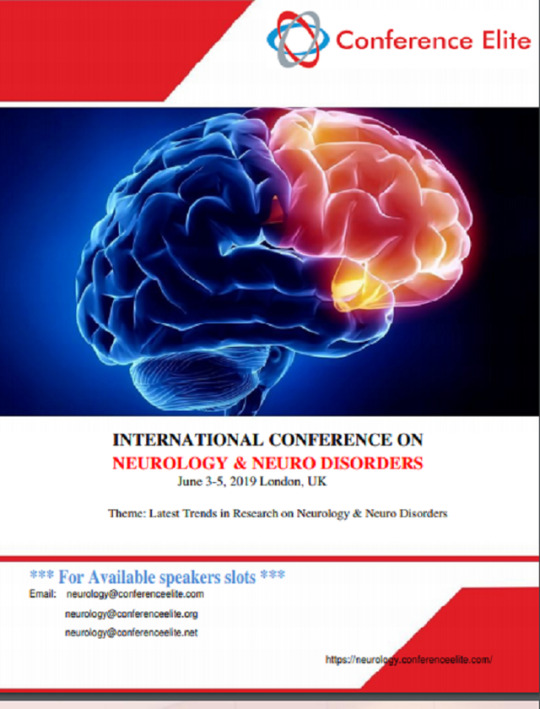

#International conference#2019#neurology and neurodisorders#brain disorders#neurology#neuromuscular disorders#neurodisorders#neuromuscular diseases#neuro diseases#neuroscience#valencia
0 notes
Text
Symptoms that indicate Neuro Disorder in Children.
Pediatric Neuro issues are very common these days. Mainly it occurs mostly at the time of birth or in the child's growing years. These symptoms are; weak bones and muscles, less alert children, poor cognitive skills, difficulty in doing activities, and loss of sensation in any part of the body. So bring your child to Neuro Citi Hospital, as it is one of the best Neuro Hospital in Punjab.


Other services we offer :
Pain Management
Neuro Navigation
Diagnosis Radiology
Neurosurgery
Interventional Radiology
Visit our hospital for the best and most specialized treatment by one of the best Neurologist in Ludhiana Punjab.
Neurociti Hospital And Diagnostics Centre
Address - B-XX/2034, near HOTEL ONN, Gobind Nagar, Ludhiana, Punjab 141001
Phone No – 7986997301
Email - [email protected]
MAP
0 notes
Photo

Our Institute of #Neuroscience provides holistic care to elderly patients with all the facilities to take care of them. Your loved ones are in expert, warm hands. Book an Appointment: https://www.apolloinformationcentre.com/best-top-neurologist-in-india/Call: +254-719-581035 #neurodisorders #elders #awareness #brain #neurologist #neurology
0 notes
Video
tumblr
Stem Cell Therapy Information for Brain Injury
#braininjury#braininjuryawareness#braininjurysurvivor#braininjuryrecovery#stemcell#globalstemcellcare#stemcellsurgery#stemcelltherapy#stemcelltransplant#stemcellresearch#stemcellgrowthfactor#neurodisorder#neurology
0 notes
Photo
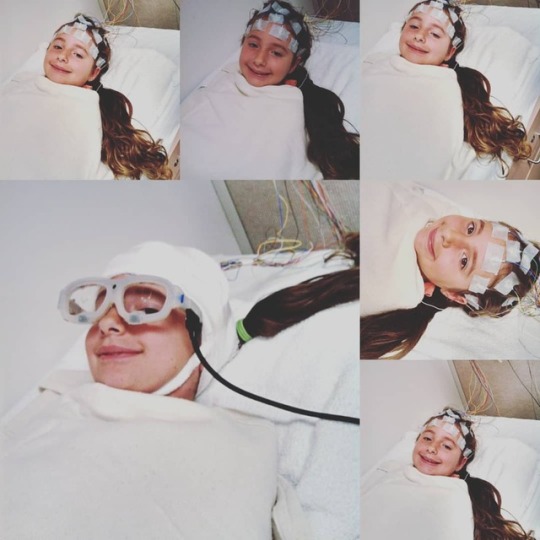
My little purple warrior before she had to look down at me so she can talk to me lol. Epilepsy never gets easier. Not for the warriors and not for the families. Between seizures is how we live until the next one and until there's a cure 💜💜💜💜💜💜💜💜💜💜 #findacure #epilepsy #epilepsyawareness #purple #warriors #warrior #epilepsywarrior #purplewarrior #eegs #eeg #keepfighting #seizures #seizuredisorder #neuroscience #neurological #neurodisorder #neurology (at Roseville, California) https://www.instagram.com/p/BwVs1kblb1h/?utm_source=ig_tumblr_share&igshid=1orahe76z2yyp
#findacure#epilepsy#epilepsyawareness#purple#warriors#warrior#epilepsywarrior#purplewarrior#eegs#eeg#keepfighting#seizures#seizuredisorder#neuroscience#neurological#neurodisorder#neurology
0 notes
Photo
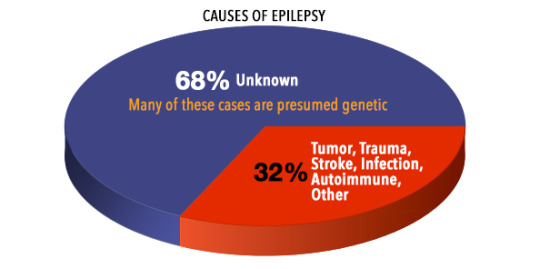
Causes of Epilepsy visit Epilepsy 2019 conference on Aug 29-30, 2019 at Vienna, Austria
Visit :https://epilepsytreatment.expertconferences.org/
0 notes
Link
http://www.remedypublications.com/open-access/narcissism-and-autism-6640.pdf
Ann Psychiatr Clin Neurosci | Volume 4, Issue 1
Annals of Psychiatry and Clinical Neuroscience
Narcissism and Autism
Sam Vaknin
Department of Psychology and Finance, Southern Federal University, CIAPS (Centre for International Advanced and Professional Studies), Russia
*Correspondance to: Sam Vaknin
Fulltext PDF
Abstract
While the narcissist avoids pain by excluding, devaluing, and discarding others - the autistic patient achieves the same result by withdrawing and by passionately incorporating in his universe only one or two people and one or two subjects of interest. Both narcissists and autistic patients are prone to react with depression to perceived slights and injuries - but Autistic patients are far more at risk of self-harm and suicide.
Citation:
Vaknin S. Narcissism and Autism. Ann Psychiatr Clin Neurosci. 2021; 4(1): 1038
Papers Published 2018-
Cold Therapy and Narcissistic Disorders of the Self, Journal of Clinical Review and Case Reports, Volume 3, Issue 6, 2018
Narcissistic disorders of the Self as Addictions, Journal of Addiction Research, Volume 2, Issue 2, 2018
Narcissists as Patients and Survivors of Accidents, Journal of Psychology and Psychotherapy,
Volume 8, 2018
Brain Injury and Trauma and Changes in Personality, Journal of Neurology, Psychiatry, and Brain Research, Volume 2019, Issue 1
Narcissism, Shame, Happiness, EC Psychology and Psychiatry, 8.3 (2019): 242-245
Education as a Public Good, Journal of Educational and Psychological Research, Vol 1, Issue 1, 2019
Dissociation and Confabulation in Narcissistic Disorders, Journal of Addiction and Addictive Disorders, 7:39 (2020) (DOI)
Misdiagnosing Personality Disorders as Anxiety Disorders (Notes to the Therapist), Journal of Psychiatry and Mental Health Behavior, Vol 1, Issue 1, 2020
The Psychopathology of the Manosphere, SunKrist Journal of Psychiatry and Mental Health,
Vol 1, Issue 1, 2020 (DOI)
Habit-forming in a Time of Pandemic, SunKrist Journal of Psychiatry and Mental Health, Vol 1,
Issue 1, 2020 (DOI)
Jung: Narcissism is Healthy and Sometimes, Genius, Current Research in Psychology and Behavioral Science (CRPBS), Vol 1, Issue 2, 2020
Love Bombing and Grooming in Cluster B Personality Disorders, CPQ Neurology and Psychology, Vol 3, Issue 3, 2020 (Certificate of Publication)
Narcissistic Mortification, Shame, and Fear, SunText Review of Neuroscience and Psychology,
Vol 1, Issue 1, 2020
Network vs. Hierarchy as Organizing Principles: Information, Power, Benefits in Business as in the Brain, Journal of Neuropsychiatry and Neurodisorders, Vol 2, Issue 2, 2020
Eating Disorders and Personality Disorders, Mathews Journal of Psychiatry and Mental Health,
Vol 5, Issue 1, 2020
The psychopathology of fetishism and Body Integrity Dysphoria (BID), Journal of Psychology and Clinical Psychiatry, Vol I, Issue 5, 2020
0 notes
Photo
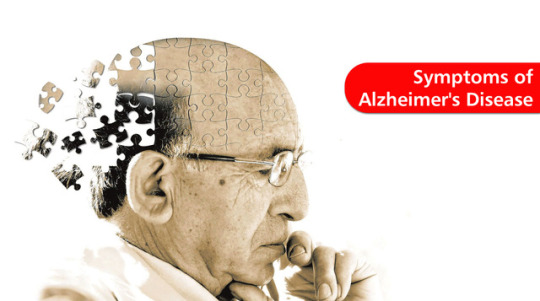
Memoryloss, cognition, language and speech deterioration are the major symptoms of a Neuro-degenerative condition called Alzheimer's disease.
Click to know more about the early signs that can help in detecting Alzheimer's disease:http://bit.ly/2oGtnLJ
#MyCure#MyCureHospitals#Alzheimers#Neurology#Neurodisorderness#BrainDisorder#Dementia#NeuroPsychiatry#NeuroSurgeries
0 notes
Text
Breakthrough technology enables communication in late-stage ALS
Written by
Hannah Nichols
Groundbreaking research has discovered a way for people with late-stage ALS to participate in meaningful communication through the use of a brain-computer interface. This technology could revolutionize lives and offer hope to more than 12,000 individuals in the United States with the disease.
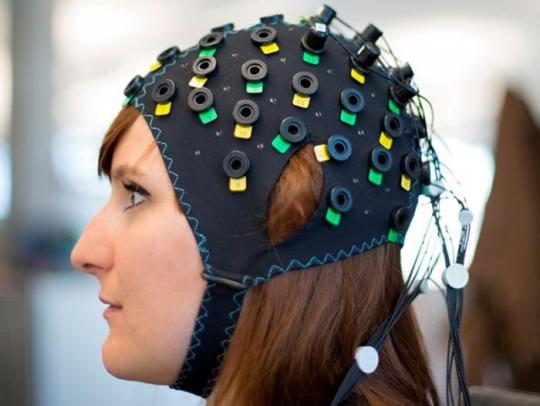
A brain-computer interface allows people with completely locked-in syndrome to communicate.
Amyotrophic lateral sclerosis (ALS) is a rapidly progressive and rare neurological disease that causes the gradual degeneration and death of motor neurons. Motor neurons are nerve cells located in the brain, brain stem, and spinal cord.
As ALS progresses, activities such as gripping, walking, speaking, swallowing, and breathing become increasingly difficult. Over time, the nerves lose the ability to trigger specific muscles, causing them to become weak, eventually resulting in paralysis.
In the late stages of ALS, the disease renders the person motionless and severely affects their ability to communicate.
People that experience complete paralysis, but maintain awareness, cognition, eye movements, and blinking are defined as having locked-in syndrome.
There are options to communicate with specialized devices that rely on nonverbal signals such as finger movement and eye fixation after the loss of verbal communication.
However, once the disorder advances and eye muscle movements also cease to work - called completely locked-in syndrome - communication has remained impossible. Until now.
More than two thirds of advanced ALS patients correctly responded
A multinational team, led by Prof. Niels Birbaumer, at the Wyss Center for Bio and Neuroengineering in Geneva, Switzerland, conducted a study to explore whether a brain-computer interface based on functional near infrared spectroscopy (fNIRS) could enable communication in completely locked-in syndrome. The study results were published PLOS Biology.
Birbaumer and team worked with four people with advanced ALS in a permanent state of completely locked-in syndrome and two entering the stage of completely locked-in syndrome. The study participants had been left with no reliable means of communicating.
Through the use of the brain-computer interface, the people with advanced ALS learned to answer personal questions with known answers and open questions that required a "yes" or "no" answer by thinking the answers. The interface detected responses by measuring changes in blood oxygen levels in the brain.
Previous theories suggested that people with completely locked-in syndrome lack the goal-directed thinking needed to use a brain-computer interface and were labeled as incapable of communication. However, the researchers found that the questions prompted correct answers in 70 percent of trials, thus overturning previous theories.
"The striking results overturn my own theory that people with completely locked-in syndrome are not capable of communication," says Birbaumer. "We found that all four patients we tested were able to answer the personal questions we asked them, using their thoughts alone. If we can replicate this study in more patients, I believe we could restore useful communication in completely locked-in states for people with motor neuron diseases," he adds.
Technology could have 'huge impact on the day-to-day life'
In the four participants with completely locked-in syndrome, the question "Are you happy?" resulted in a consistent "yes" response that was repeated over weeks of questioning.
Professor Birbaumer and colleagues note that they were surprised at the positive response from the four patients with completely locked-in syndrome when asked about their quality of life. "All four had accepted artificial ventilation in order to sustain their life, when breathing became impossible; thus, in a sense, they had already chosen to live," he explains.
"What we observed was that as long as they received satisfactory care at home, they found their quality of life acceptable. It is for this reason, if we could make this technique widely clinically available, it could have a huge impact on the day-to-day life of people with completely locked-in syndrome," adds Birbaumer.
The family of one of the participants requested for the researchers to ask whether he would allow his daughter to marry her boyfriend. Nine times out of the 10 times the question was asked, the response was "no."
"Restoring communication for completely locked-in patients is a crucial first step in the challenge to regain movement," says Prof. John Donoghue, Director of the Wyss Center.
"The Wyss Center plans to build on the results of this study to develop clinically useful technology that will be available to people with paralysis resulting from ALS, stroke, or spinal cord injury. The technology used in the study also has broader applications that we believe could be further developed to treat and monitor people with a wide range of neurodisorders." -Prof. John Donoghue
The progress made with this brain-computer interface is potentially the first step toward the abolition of completely locked-in states - at least for people with late-stage ALS.
61 notes
·
View notes
Link
Conferenceelite is organizing International Conference On Neurology And Neuro Disorders from June 03-05,2019 in London,UK.
#international conferences#neurology#Neuroscience#neuromuscular disorders#neuromuscular diseases#neuro diseases#2019#brain disorders
0 notes
Text
BrainQ raises $5.3M to treat neurological disorders with the help of AI
BrainQ raises $5.3M to treat neurological disorders with the help of AI
BrainQ, an Israel-based startup that aims to help stroke victims and those with spinal cord injuries treat their injuries with the help of a personalized electromagnetic treatment protocol, today announced that it has raised a $5.3 million funding round on top of the $3.5 million the company previously raised. The company’s investors include Qure Ventures, crowdfunding platform OurCrowd.com, Norma Investments, IT-Farm and a number of angel investors, including Valtech Cardio founder and CEO Amir Gross.
When we last talked to BrainQ earlier this year, the team was working on two human clinical trials for stroke patients in Israel. At that time, the company had closed its first funding round and had also recently started to work with Google’s Launchpad Accelerator, too.
The general idea behind BrainQ is to use the patient’s brainwaves to generate a tailored treatment protocol. No AI company would be complete without data — it’s what drives these algorithms, after all — and the company says it owns one the largest Brain Computer Interface-based EEG databases for motor tasks. It’s that database that allows it to interpret the patient’s brain waves and generate its treatment protocol.
BrainQ EEG reader device
“We are on the verge of a new era where AI- based precision medicine will be used to treat neurodisorders, which do not have a sufficient solution to date,” said BrainQ CEO Yotam Drechsler in today’s announcement. “At BrainQ, we are thrilled by the opportunity to bring this vision to life in the world of neuro-recovery. In a short time, we have already achieved significant results and are looking forward to the opportunity to push our technology and expand our operations, further positioning BrainQ as a leader in the world of BCI-based precision medicine.”
As is typical for Israeli startups, the team’s background is quite impressive and includes former members of the country’s elite intelligence units and academics with a background in AI and neuroscience.
0 notes
Link
BrainQ, an Israel-based startup that aims to help stroke victims and those with spinal cord injuries treat their injuries with the help of a personalized electromagnetic treatment protocol, today announced that it has raised a $5.3 million funding round on top of the $3.5 million the company previously raised. The company’s investors include Qure Ventures, crowdfunding platform OurCrowd.com, Norma Investments, IT-Farm and a number of angel investors, including Valtech Cardio founder and CEO Amir Gross.
When we last talked to BrainQ earlier this year, the team was working on two human clinical trials for stroke patients in Israel. At that time, the company had closed its first funding round and had also recently started to work with Google’s Launchpad Accelerator, too.
The general idea behind BrainQ is to use the patient’s brainwaves to generate a tailored treatment protocol. No AI company would be complete without data — it’s what drives these algorithms, after all — and the company says it owns one the largest Brain Computer Interface-based EEG databases for motor tasks. It’s that database that allows it to interpret the patient’s brain waves and generate its treatment protocol.
BrainQ EEG reader device
“We are on the verge of a new era where AI- based precision medicine will be used to treat neurodisorders, which do not have a sufficient solution to date,” said BrainQ CEO Yotam Drechsler in today’s announcement. “At BrainQ, we are thrilled by the opportunity to bring this vision to life in the world of neuro-recovery. In a short time, we have already achieved significant results and are looking forward to the opportunity to push our technology and expand our operations, further positioning BrainQ as a leader in the world of BCI-based precision medicine.”
As is typical for Israeli startups, the team’s background is quite impressive and includes former members of the country’s elite intelligence units and academics with a background in AI and neuroscience.
via TechCrunch
0 notes
Link
Greetings! from 5th International Conference on Epilepsy and Treatment on August 29-30, 2019 at Vienna, Austria
0 notes
Link
The psychopathology of fetishism and Body Integrity Dysphoria (BID)
https://medcraveonline.com/JPCPY/JPCPY-11-00685.pdf
Journal of
Psychology & Clinical Psychiatry
Papers Published 2018-
Cold Therapy and Narcissistic Disorders of the Self, Journal of Clinical Review and Case Reports, Volume 3, Issue 6, 2018
Narcissistic disorders of the Self as Addictions, Journal of Addiction Research, Volume 2, Issue 2, 2018
Narcissists as Patients and Survivors of Accidents, Journal of Psychology and Psychotherapy,
Volume 8, 2018
Brain Injury and Trauma and Changes in Personality, Journal of Neurology, Psychiatry, and Brain Research, Volume 2019, Issue 1
Narcissism, Shame, Happiness, EC Psychology and Psychiatry, 8.3 (2019): 242-245
Education as a Public Good, Journal of Educational and Psychological Research, Vol 1, Issue 1, 2019
Dissociation and Confabulation in Narcissistic Disorders, Journal of Addiction and Addictive Disorders, 7:39 (2020) (DOI)
Misdiagnosing Personality Disorders as Anxiety Disorders (Notes to the Therapist), Journal of Psychiatry and Mental Health Behavior, Vol 1, Issue 1, 2020
The Psychopathology of the Manosphere, SunKrist Journal of Psychiatry and Mental Health,
Vol 1, Issue 1, 2020 (DOI)
Habit-forming in a Time of Pandemic, SunKrist Journal of Psychiatry and Mental Health, Vol 1,
Issue 1, 2020 (DOI)
Jung: Narcissism is Healthy and Sometimes, Genius, Current Research in Psychology and Behavioral Science (CRPBS), Vol 1, Issue 2, 2020
Love Bombing and Grooming in Cluster B Personality Disorders, CPQ Neurology and Psychology, Vol 3, Issue 3, 2020 (Certificate of Publication)
Narcissistic Mortification, Shame, and Fear, SunText Review of Neuroscience and Psychology,
Vol 1, Issue 1, 2020
Network vs. Hierarchy as Organizing Principles: Information, Power, Benefits in Business as in the Brain, Journal of Neuropsychiatry and Neurodisorders, Vol 2, Issue 2, 2020
Eating Disorders and Personality Disorders, Mathews Journal of Psychiatry and Mental Health,
Vol 5, Issue 1, 2020
0 notes
Link
https://www.mathewsopenaccess.com/scholarly-articles/eating-disorders-and-personality-disorders.pdf
Article In Press
Volume 5, Issue 1 - 2020
Research Article
Eating Disorders and Personality Disorders
Author : Sam VAKNIN* Citation : VAKNIN S. (2020). Eating Disorders and Personality Disorders. Mathews J Psychiatry Ment Health. (5)1:26
PDF
Papers Published 2018-
Cold Therapy and Narcissistic Disorders of the Self, Journal of Clinical Review and Case Reports, Volume 3, Issue 6, 2018
Narcissistic disorders of the Self as Addictions, Journal of Addiction Research, Volume 2, Issue 2, 2018
Narcissists as Patients and Survivors of Accidents, Journal of Psychology and Psychotherapy,
Volume 8, 2018
Brain Injury and Trauma and Changes in Personality, Journal of Neurology, Psychiatry, and Brain Research, Volume 2019, Issue 1
Narcissism, Shame, Happiness, EC Psychology and Psychiatry, 8.3 (2019): 242-245
Education as a Public Good, Journal of Educational and Psychological Research, Vol 1, Issue 1, 2019
Dissociation and Confabulation in Narcissistic Disorders, Journal of Addiction and Addictive Disorders, 7:39 (2020) (DOI)
Misdiagnosing Personality Disorders as Anxiety Disorders (Notes to the Therapist), Journal of Psychiatry and Mental Health Behavior, Vol 1, Issue 1, 2020
The Psychopathology of the Manosphere, SunKrist Journal of Psychiatry and Mental Health,
Vol 1, Issue 1, 2020 (DOI)
Habit-forming in a Time of Pandemic, SunKrist Journal of Psychiatry and Mental Health, Vol 1,
Issue 1, 2020 (DOI)
Jung: Narcissism is Healthy and Sometimes, Genius, Current Research in Psychology and Behavioral Science (CRPBS), Vol 1, Issue 2, 2020
Love Bombing and Grooming in Cluster B Personality Disorders, CPQ Neurology and Psychology, Vol 3, Issue 3, 2020 (Certificate of Publication)
Narcissistic Mortification, Shame, and Fear, SunText Review of Neuroscience and Psychology,
Vol 1, Issue 1, 2020
Network vs. Hierarchy as Organizing Principles: Information, Power, Benefits in Business as in the Brain, Journal of Neuropsychiatry and Neurodisorders, Vol 2, Issue 2, 2020
Eating Disorders and Personality Disorders, Mathews Journal of Psychiatry and Mental Health,
Vol 5, Issue 1, 2020
0 notes